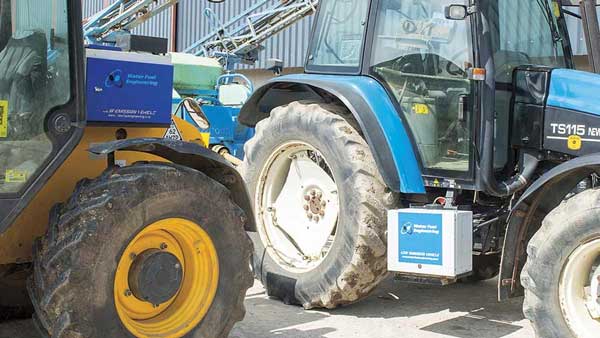Farmers Weekly,
Farmers Weekly, 25 June 2018
In the traditional farming community many homosexual farmers are struggling in silence with their sexuality. In a profession where suicide rates are among the highest in the UK, a new film is aiming to break the silence. This helps support SDG 3 (good health and well-being) and SDG 10 (reduced inequalities).
Elsevier,
Elsevier Connect, 20 June 2018
One year ago RELX Group launched the SDG Resource Centre which features research articles, news, reports, videos, webinars, events and tools and also includes content from our UN partners. Content can be sorted by SDG, keyword, tags, geography and more. Here’s how you can use the SDG Resource Centre to find relevant content for your research or to advance sustainable development in your organisation.
Farmers Weekly,
18 June 2018
Scottish farmers have been using clean energy technology normally used by buses and bin lorries to power their farm machines, helping to reduce emissions and make efficiencies. This helps to advance both goal 7 and goal 12.
Brightmine,
June 11, 2018
Despite the fact that getting a job with a living wage decreases the risk that an individual will commit another crime, society places many barriers to people with criminal records re-entering the workforce. SDGs 8 and 10 includes bringing the formerly incarcerated back as contributing members of society by providing meaningful work. SDG 5 also is impacted, as bias against women with criminal histories is greater than against men. A new study reveals that misconceptions that prevent employers from considering job applicants with criminal histories are not supported by the data; these workers prove to be as good or a better “quality of hire” than employees without a criminal record.
RX
Infosecurity Europe is Europe’s number one information security conference and exhibition. Featuring Europe’s largest, highly regarded and respected FREE to attend education programme in the industry. Over 315 exhibitors showcase the most diverse range of products and services to 15,500 information security professionals. This makes Infosecurity Europe the MUST-ATTEND event of the year.
Partner content
Linking to Goals 2, 6, 15, 17, this toolbox connects your business to the latest tools, guidance, case studies, datasets, and more most relevant to you based on your circumstances and interests.
The Corporate Water Disclosure Guidelines advances goal 6; it seeks to provide a common approach to corporate water disclosure that addresses the complexity and local nature of water resources.
Linking to Goal 6 and Goal 17, this Guide to Water-Related Collective Action offers good practice to help companies establish enduring relationships with a broad spectrum of stakeholders, leaders, and individuals to advance sustainable water management.
Linking to Goal 12, this is the UN Global Compact Sustainable Supply Chains website
Partner content
United Nations University, May 2018.
Contributing to SDGs 16 (Peace, Justice and Strong Institutions) and 17 (Partnerships for the Goals), this research seeks to understand if, when and how transitional justice, in combination with other conflict resolution tools, can contribute to transitions away from conflict in settings affected by major jihadist groups.



